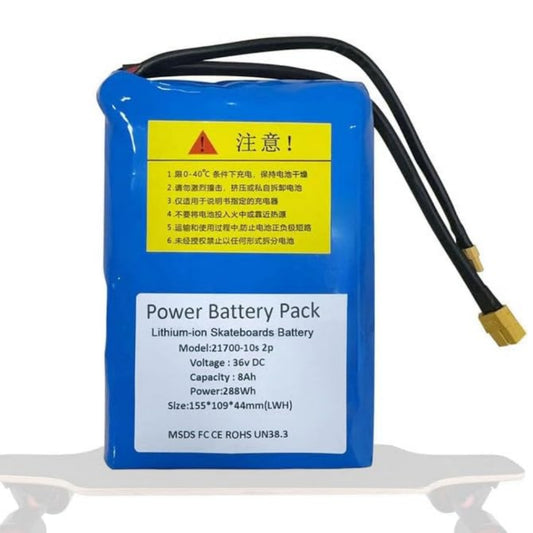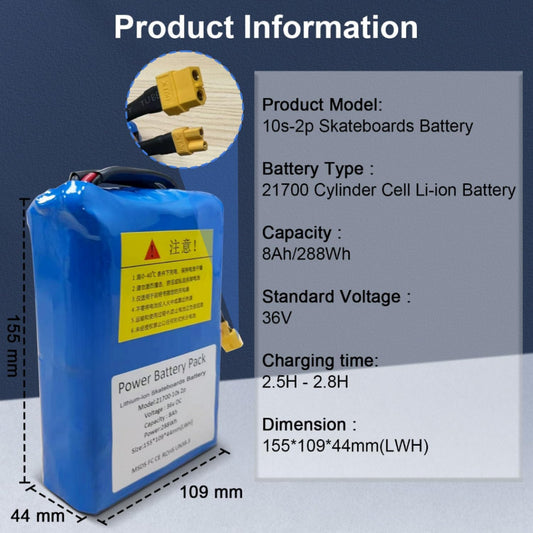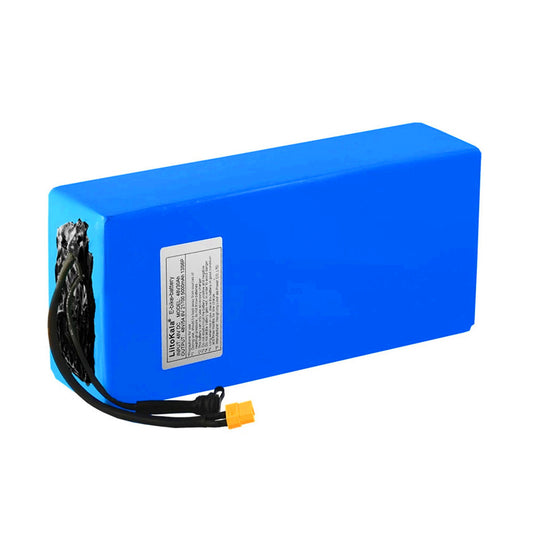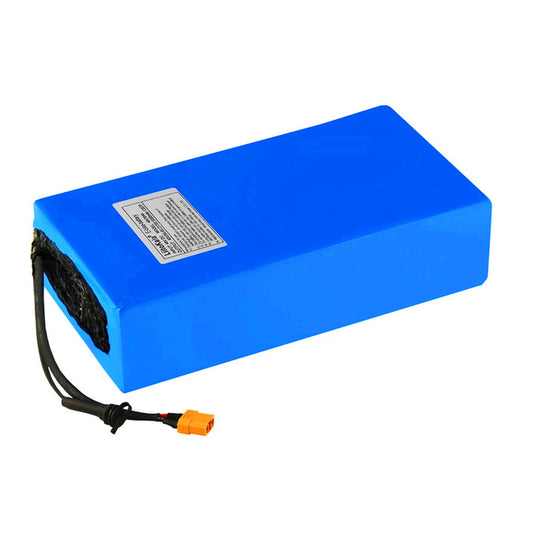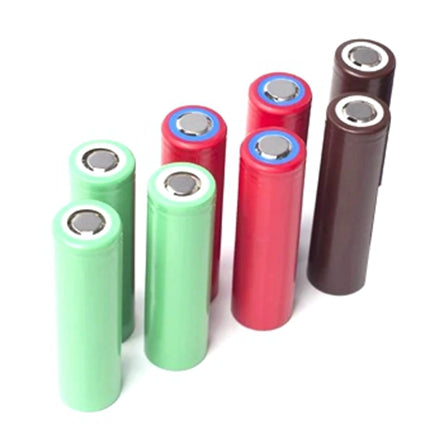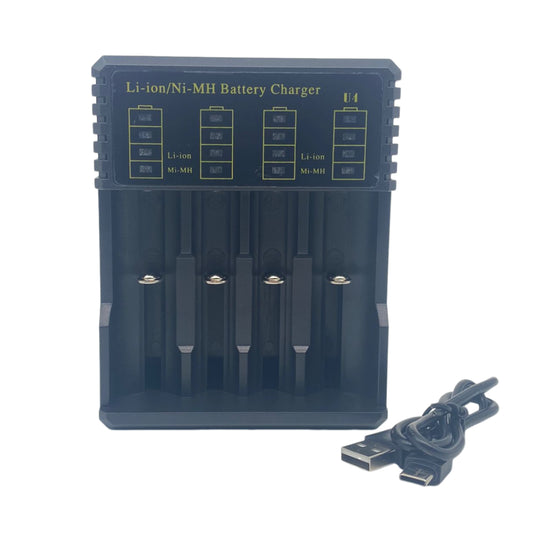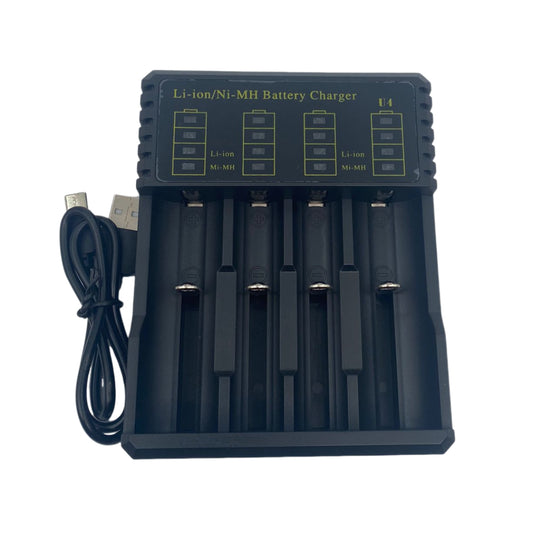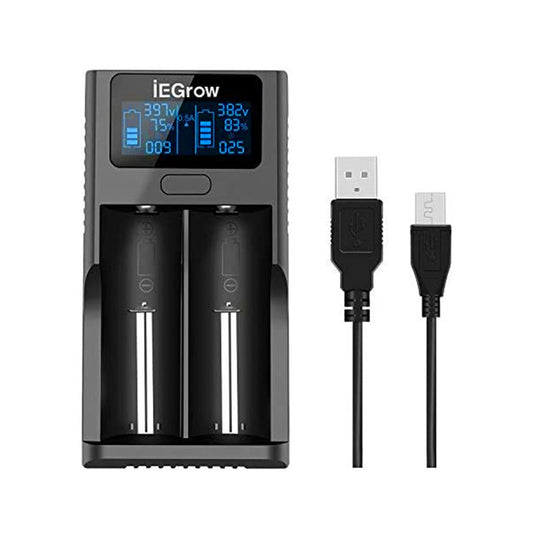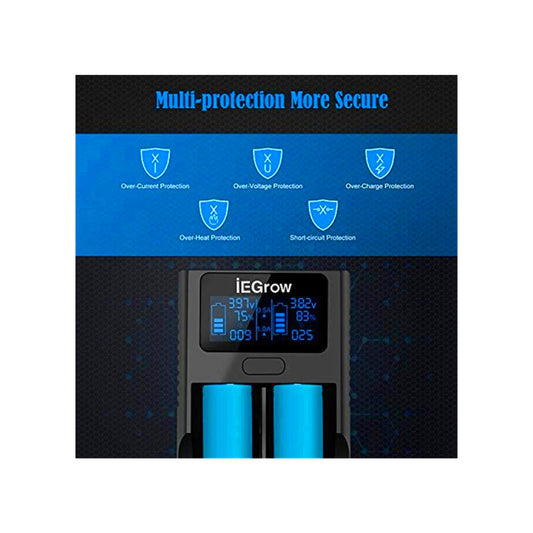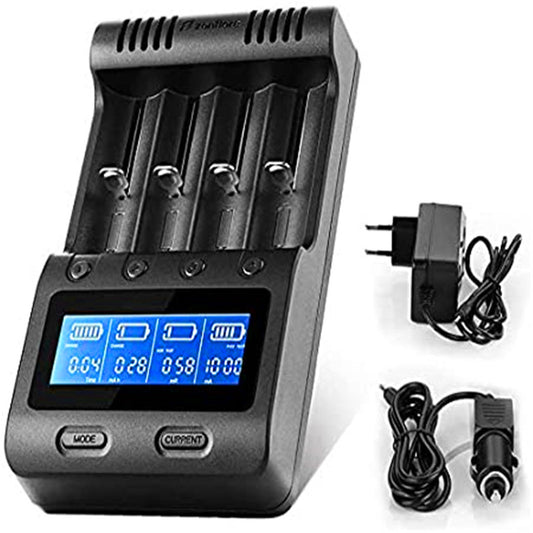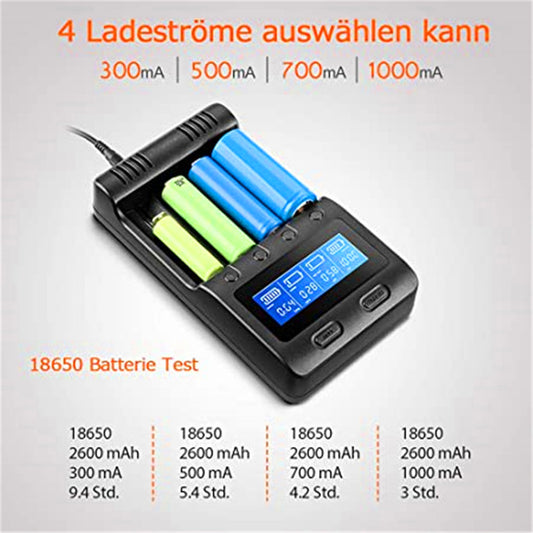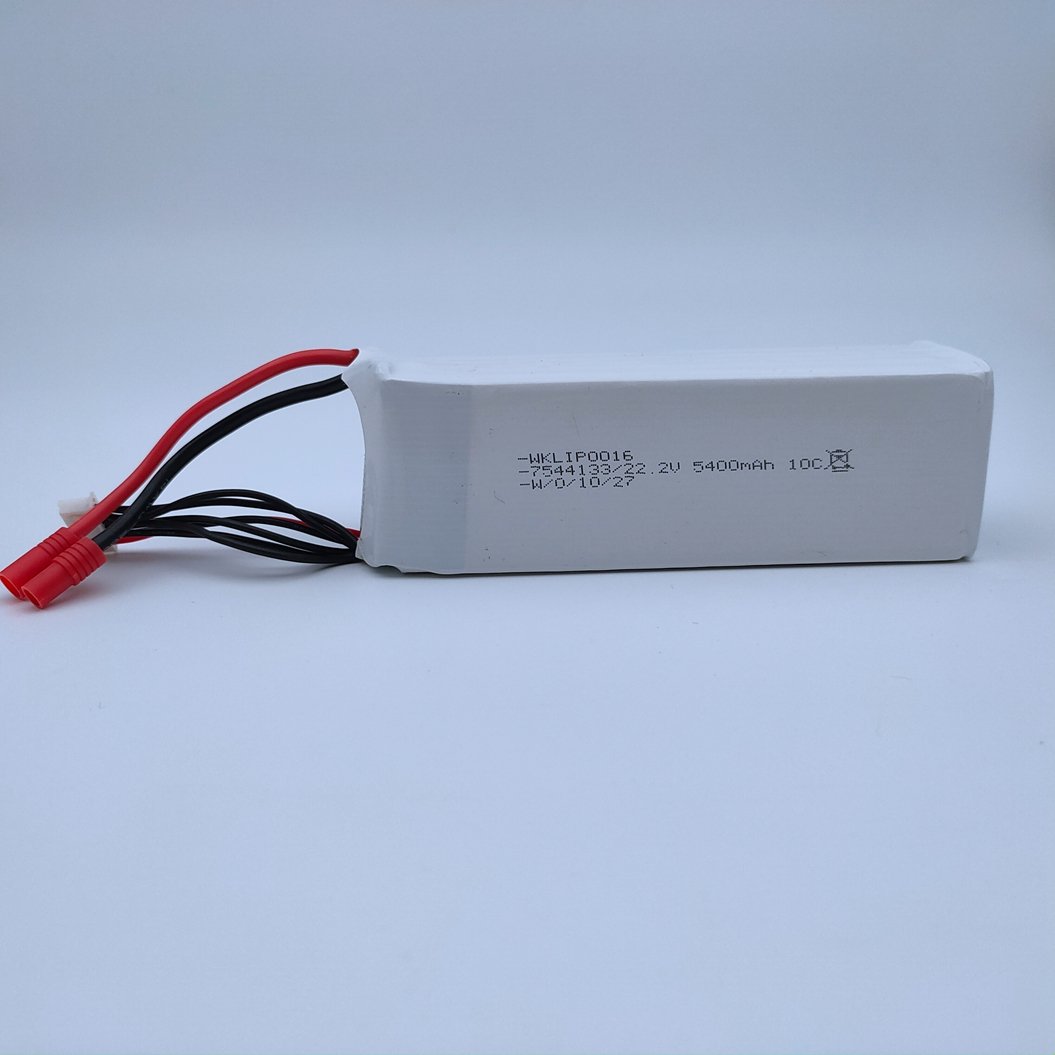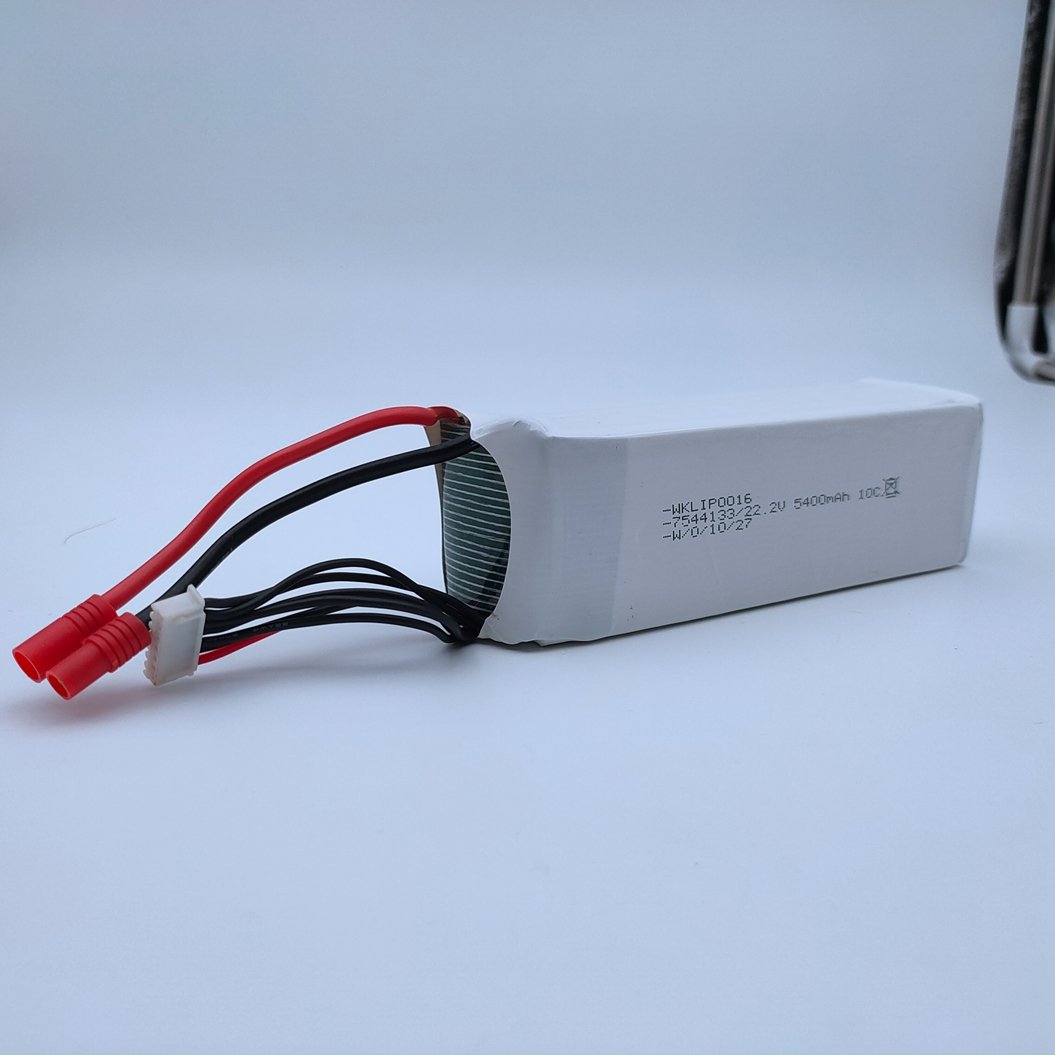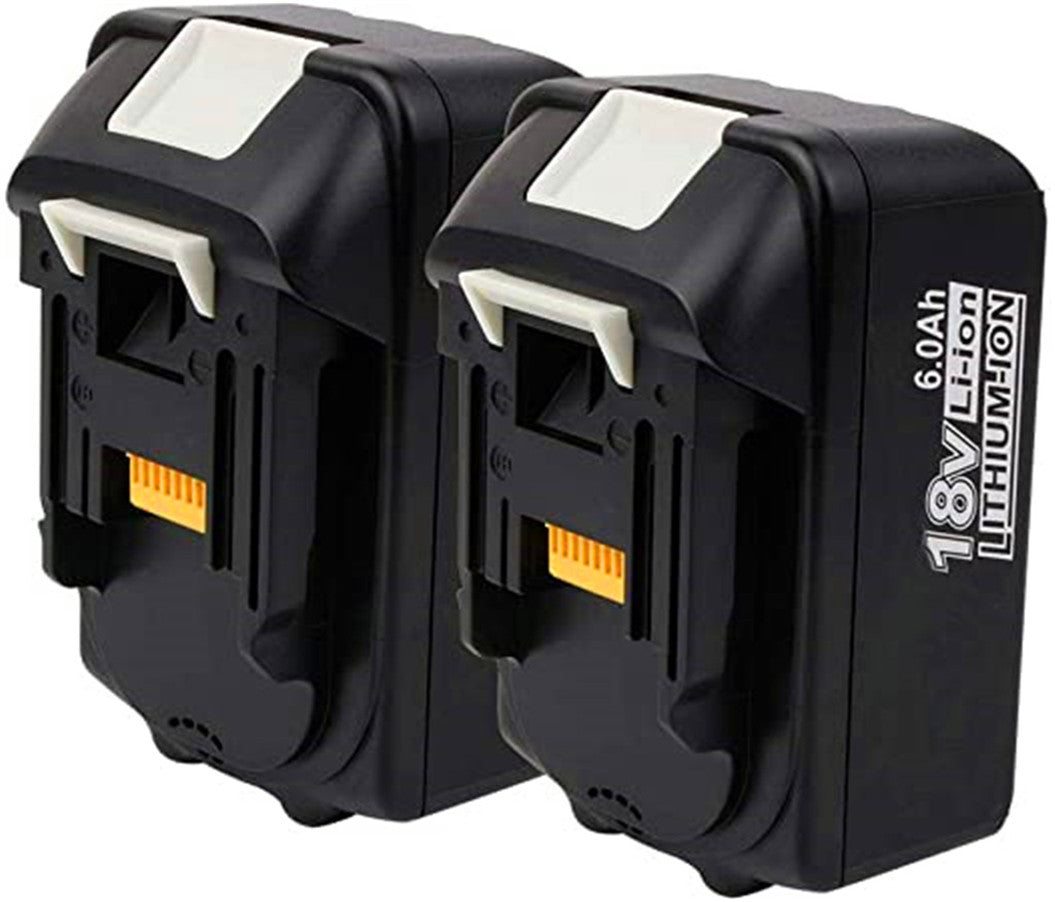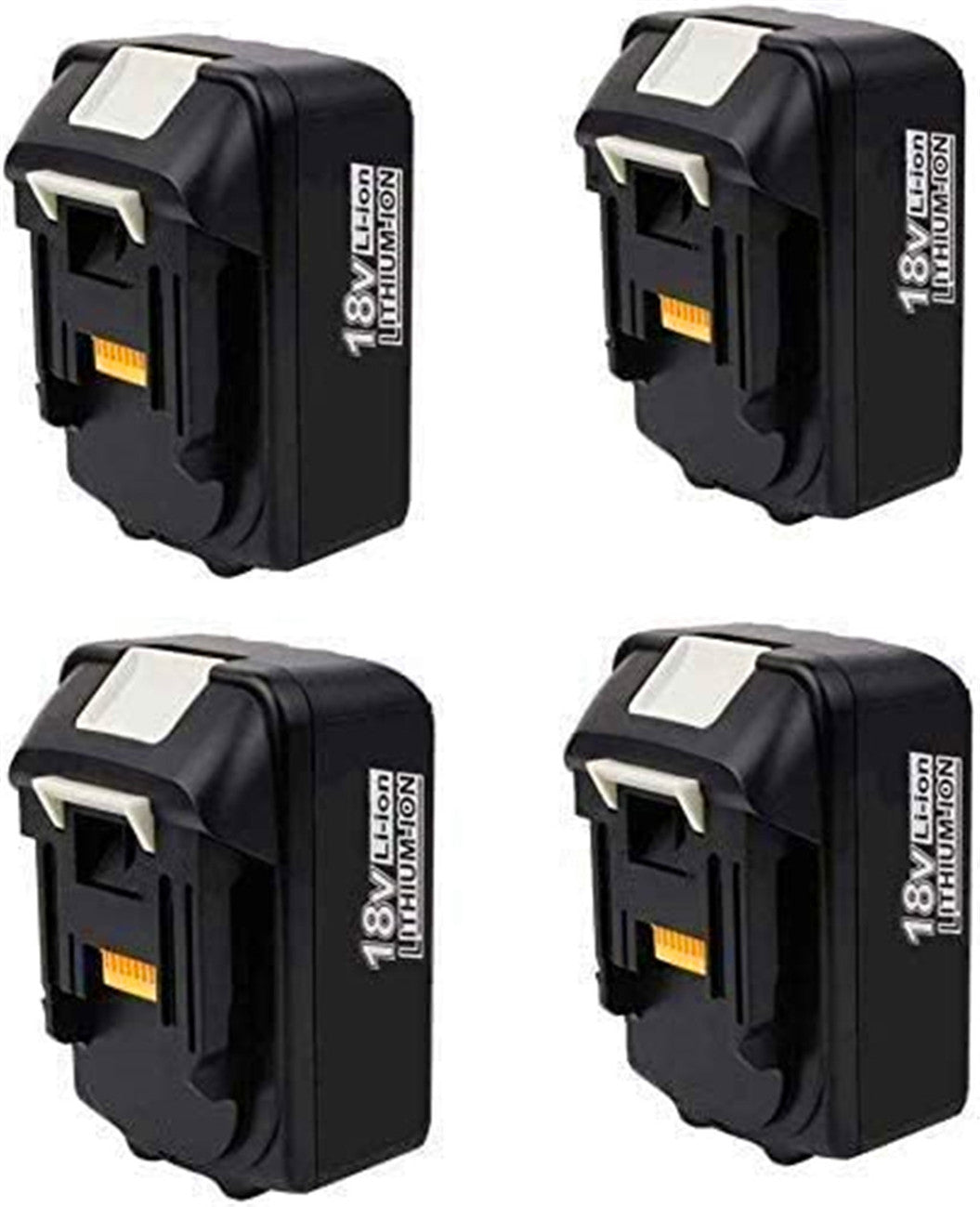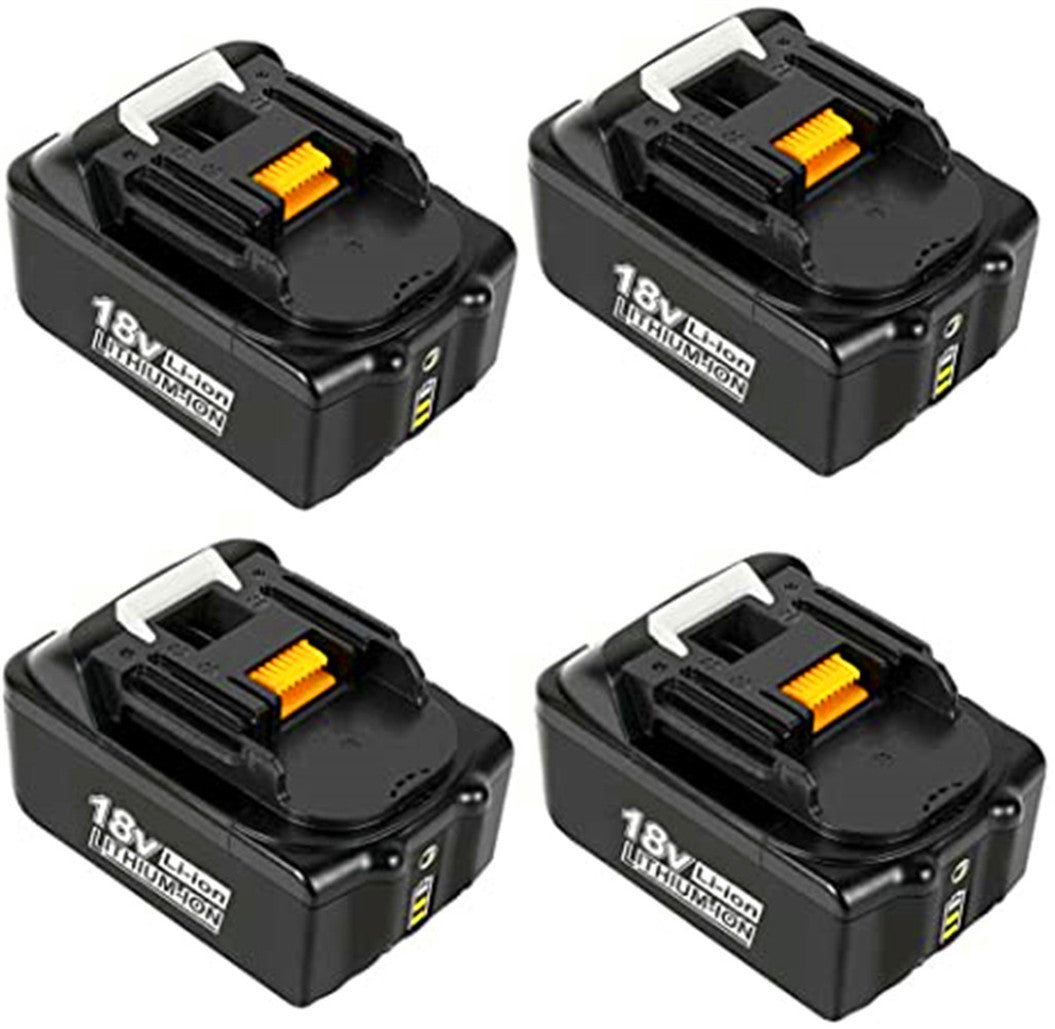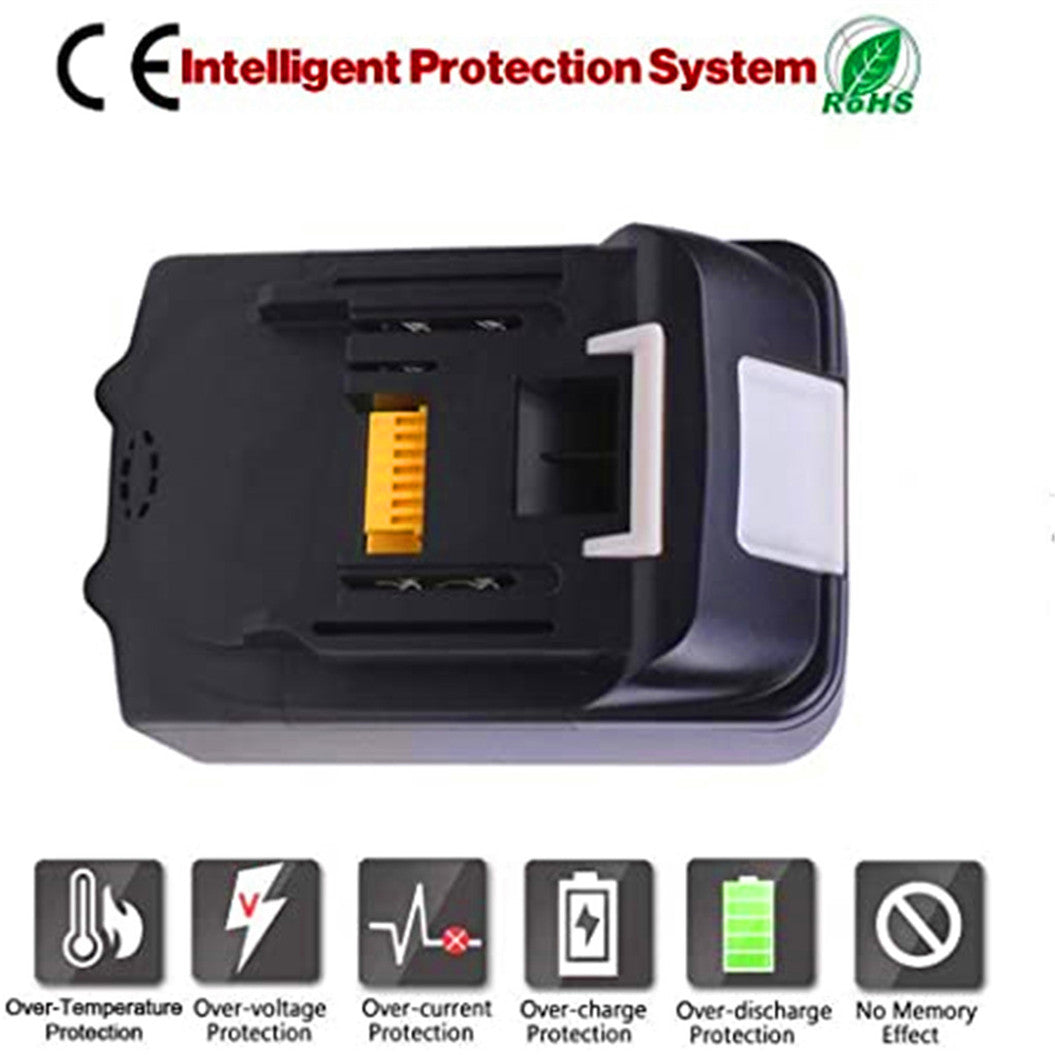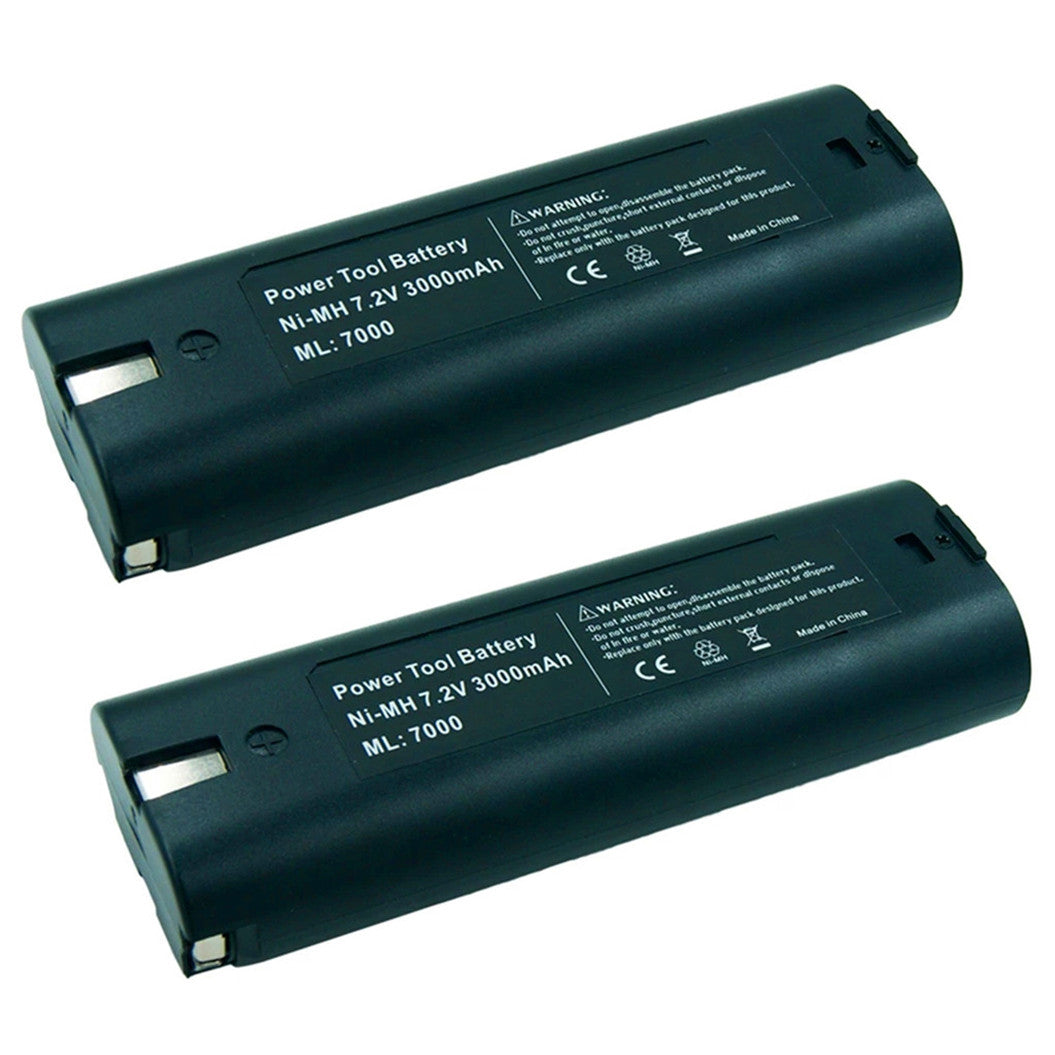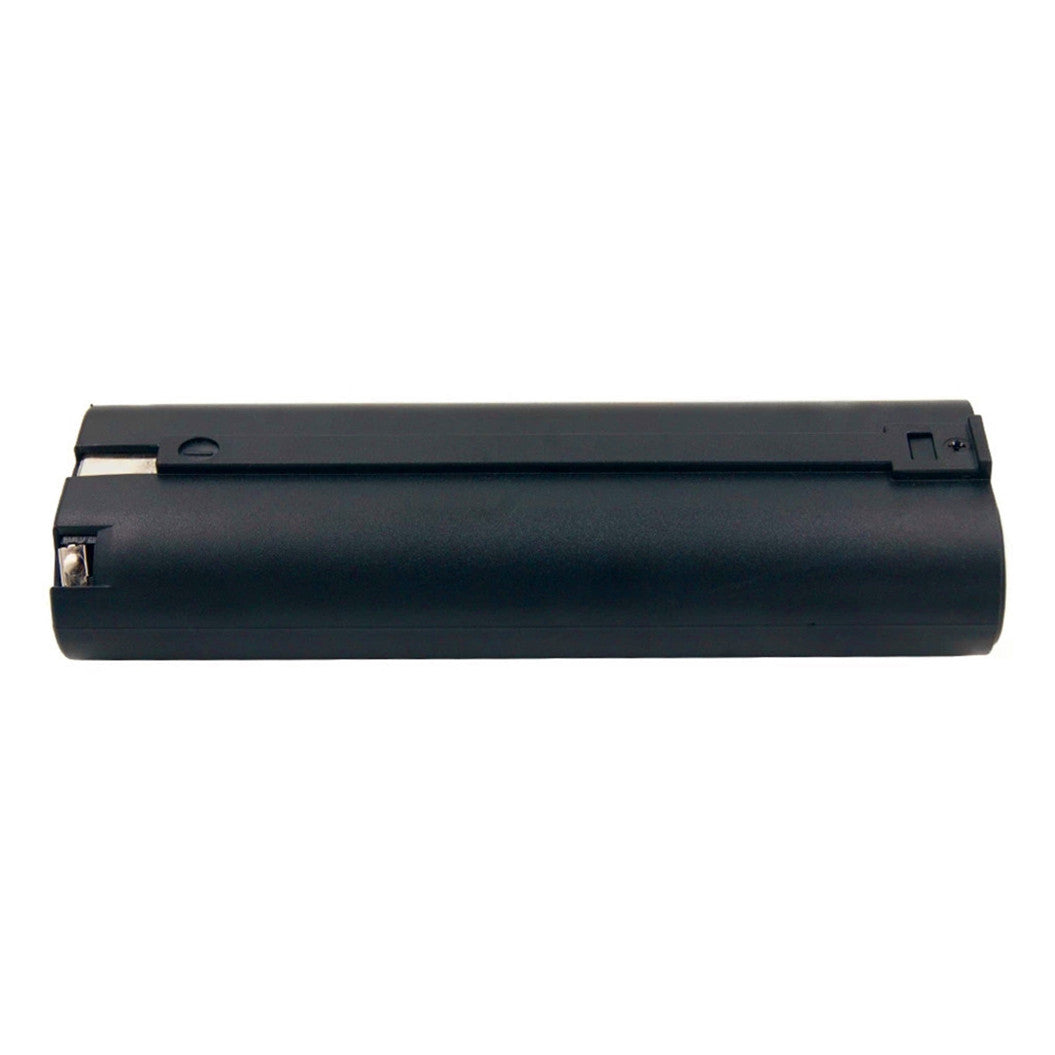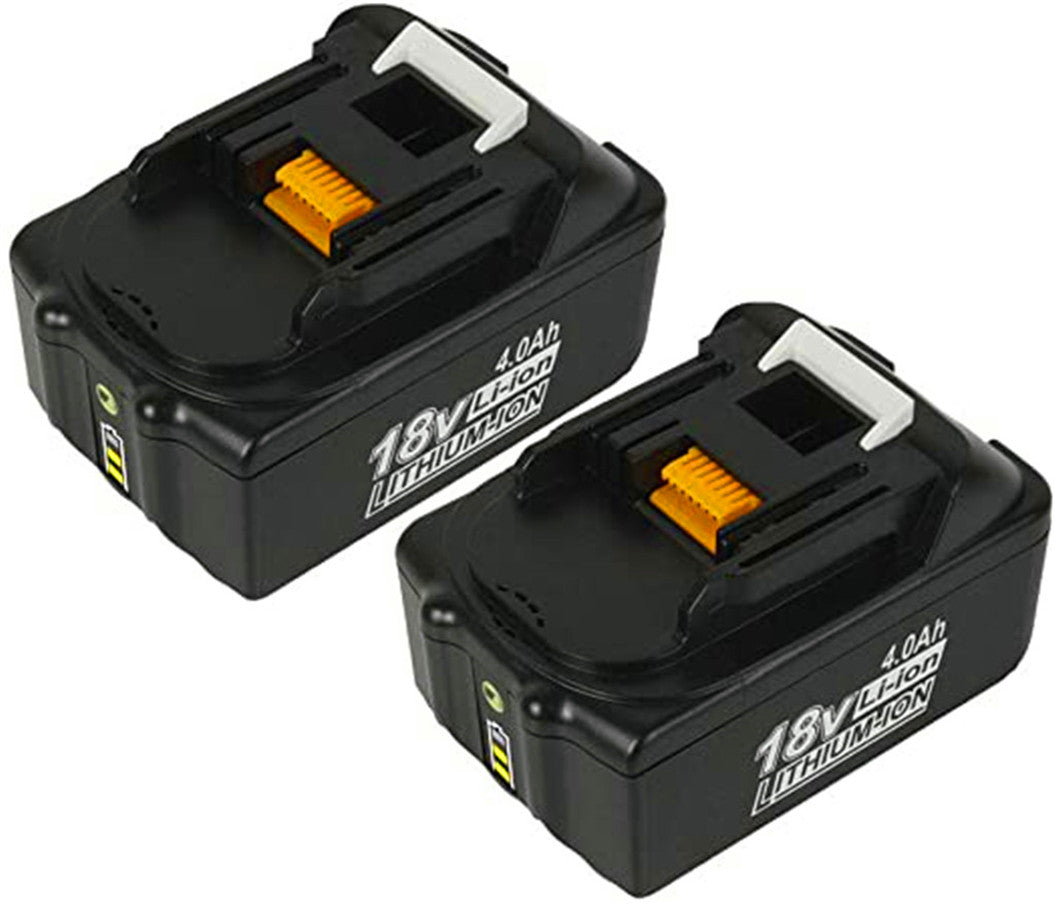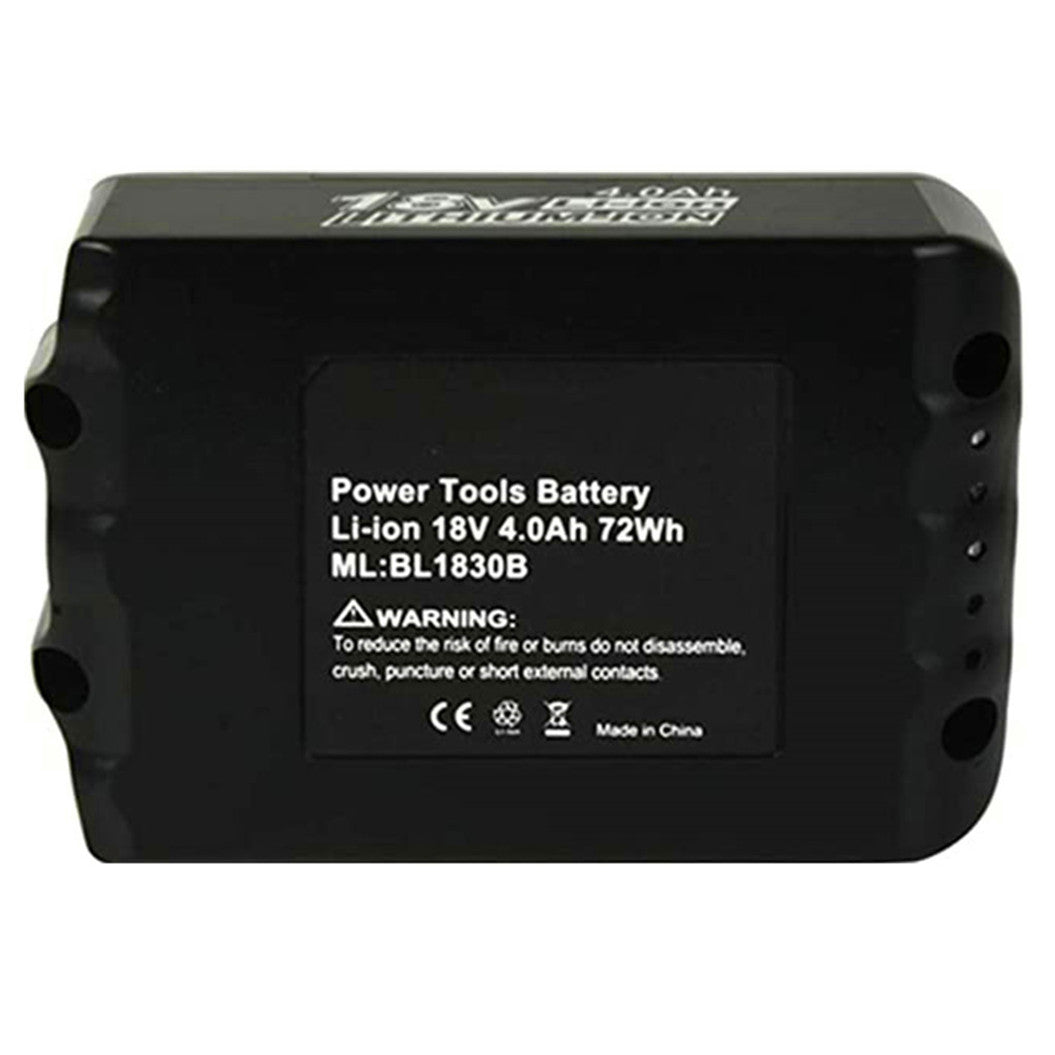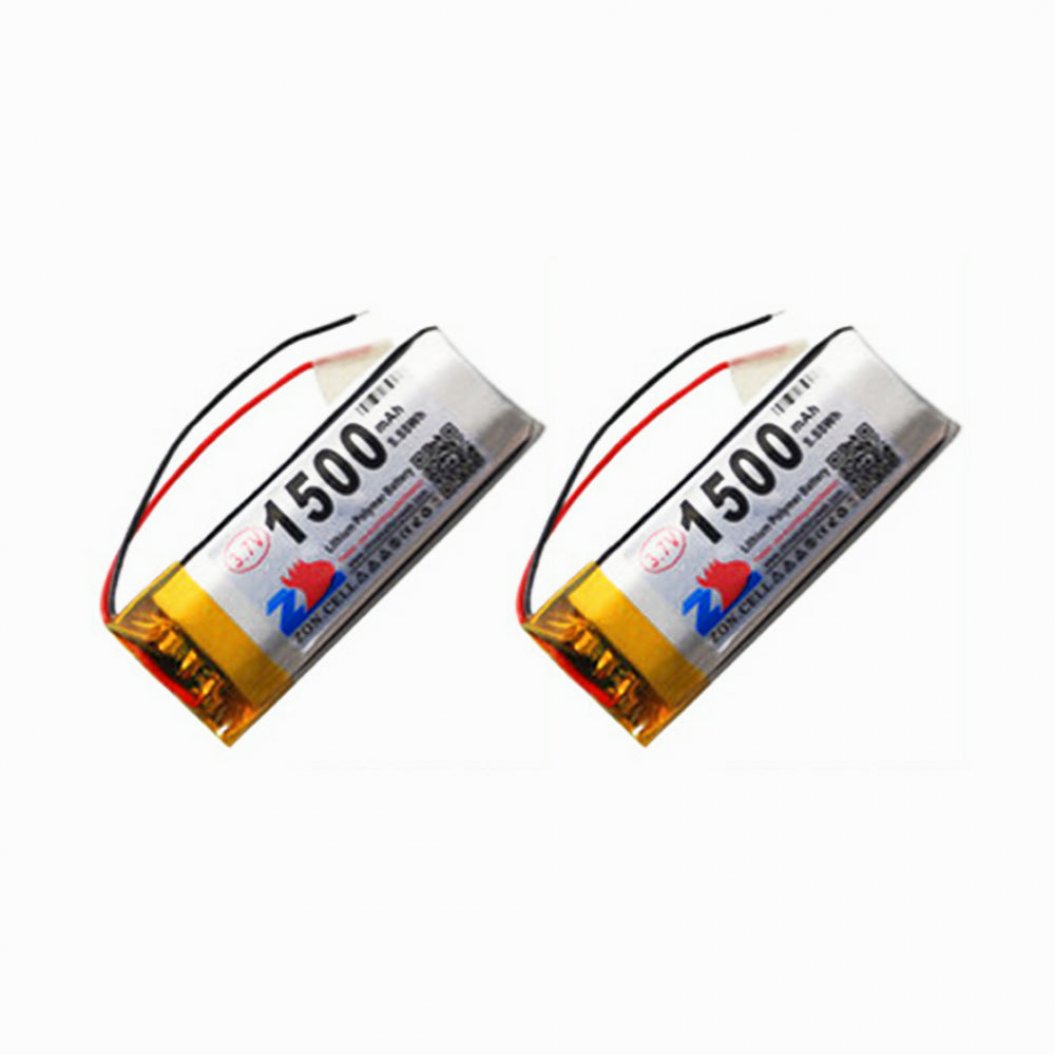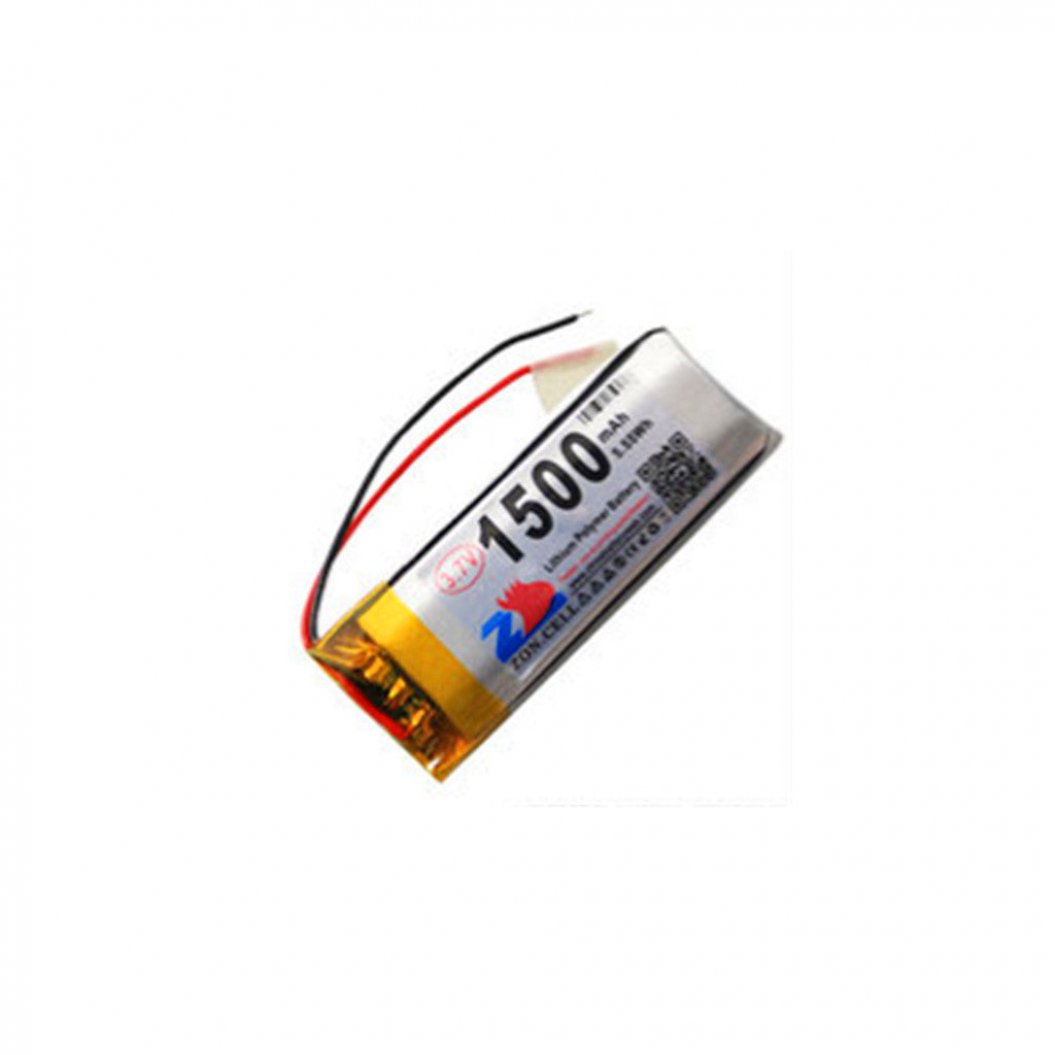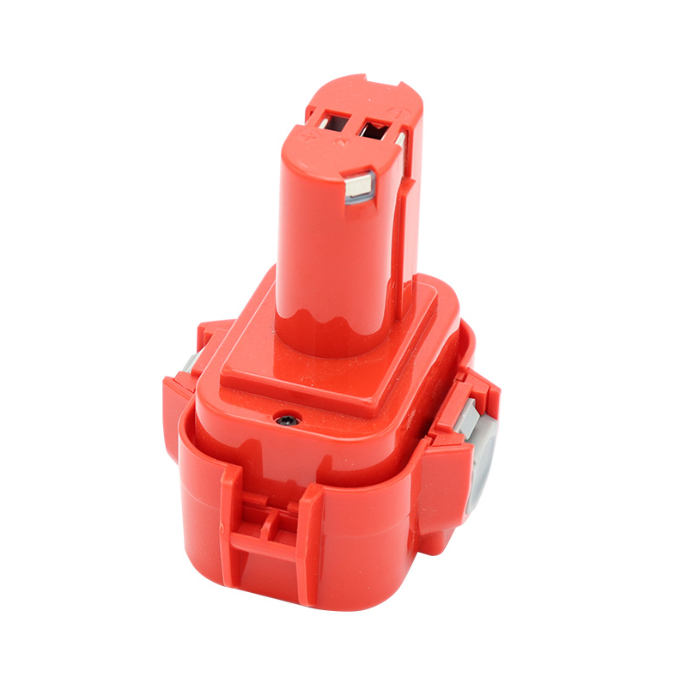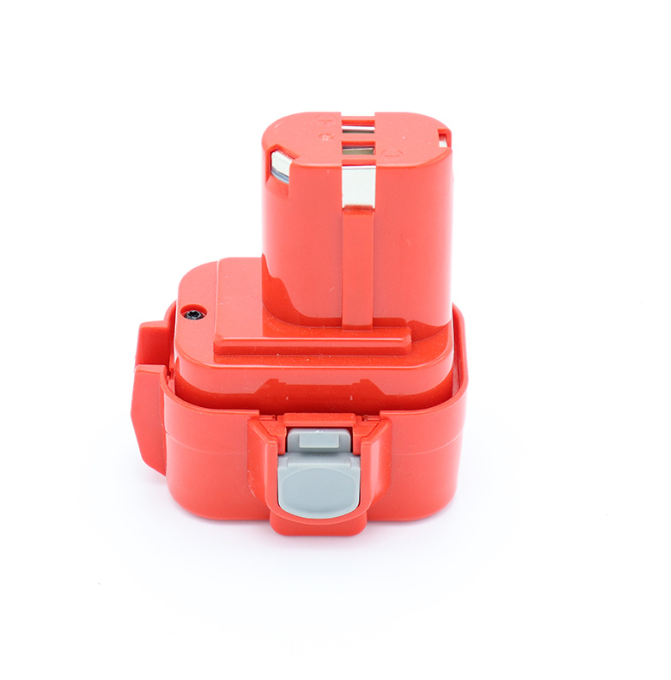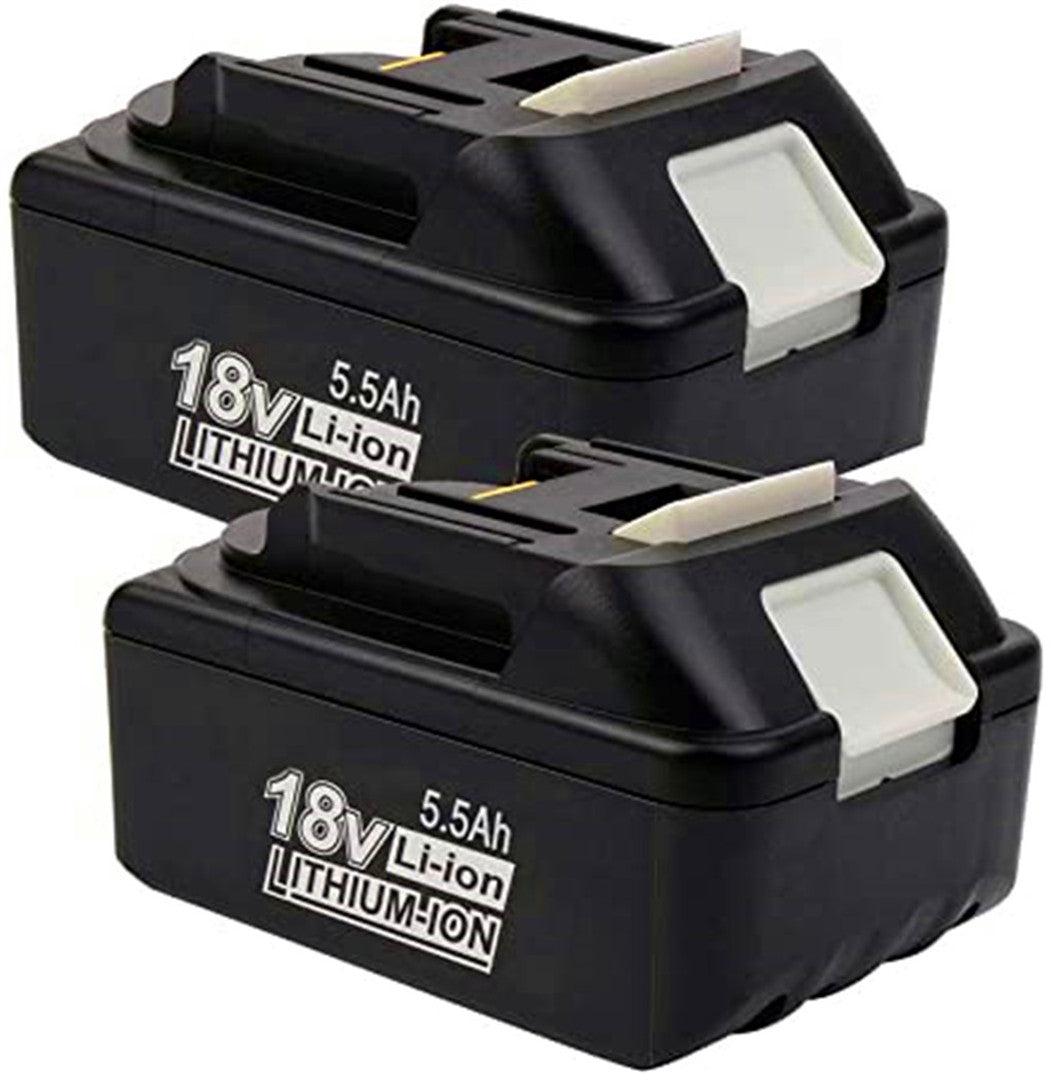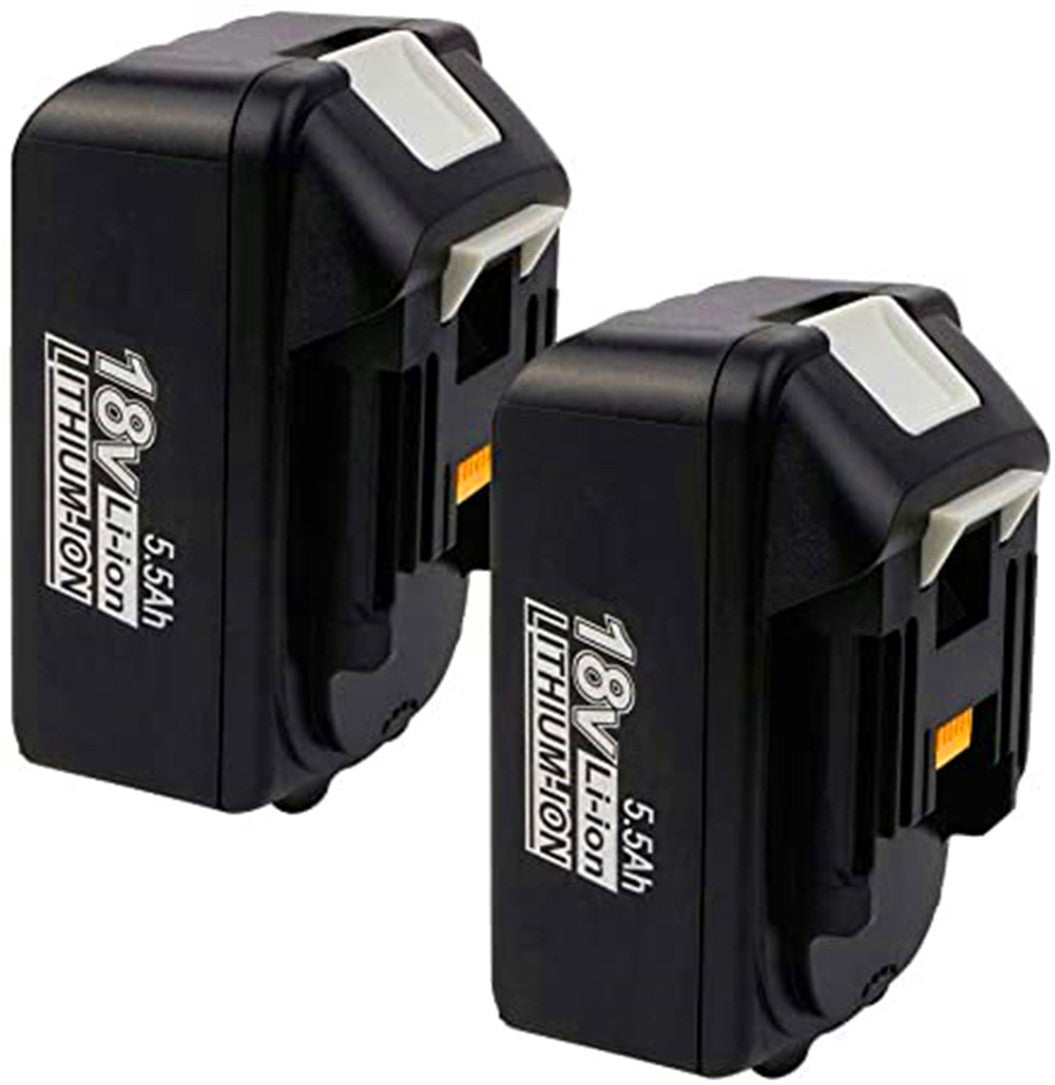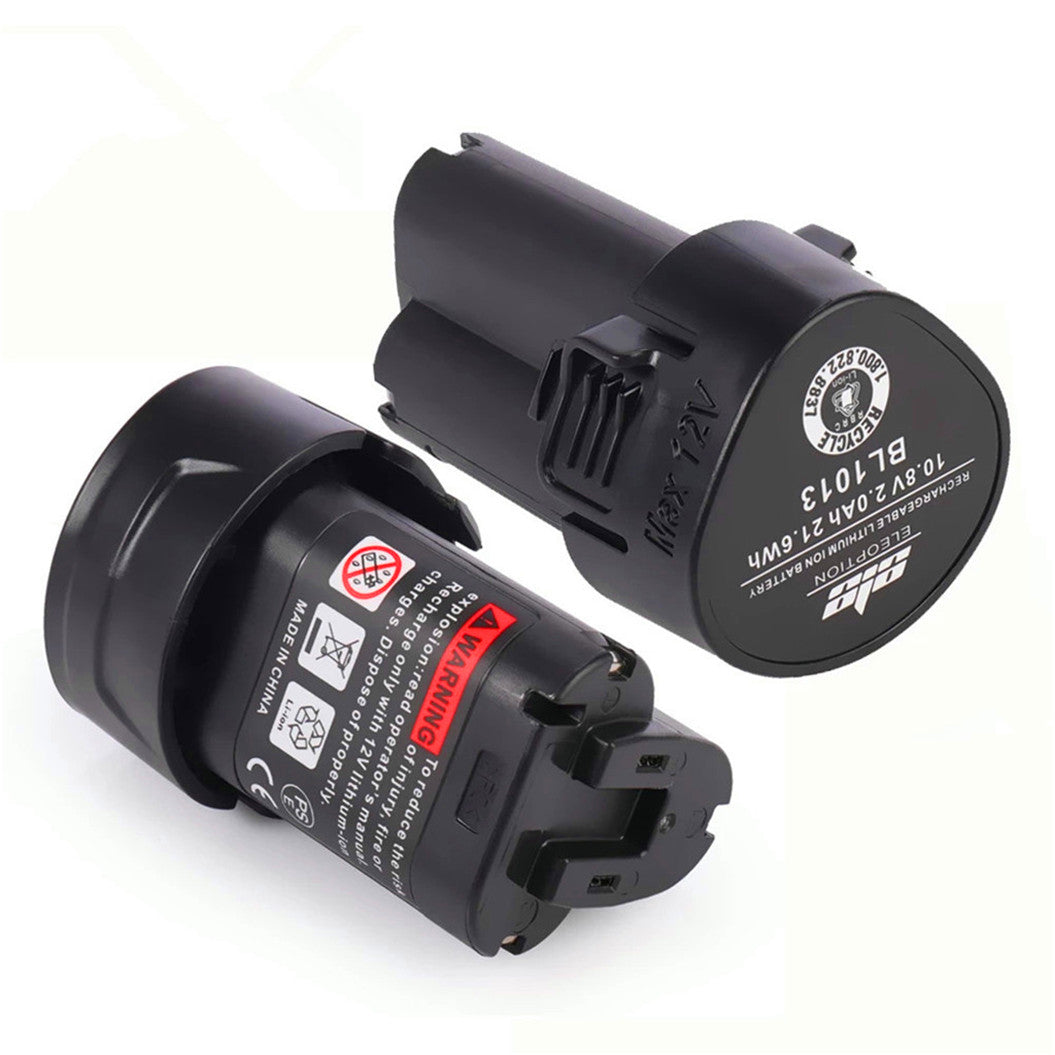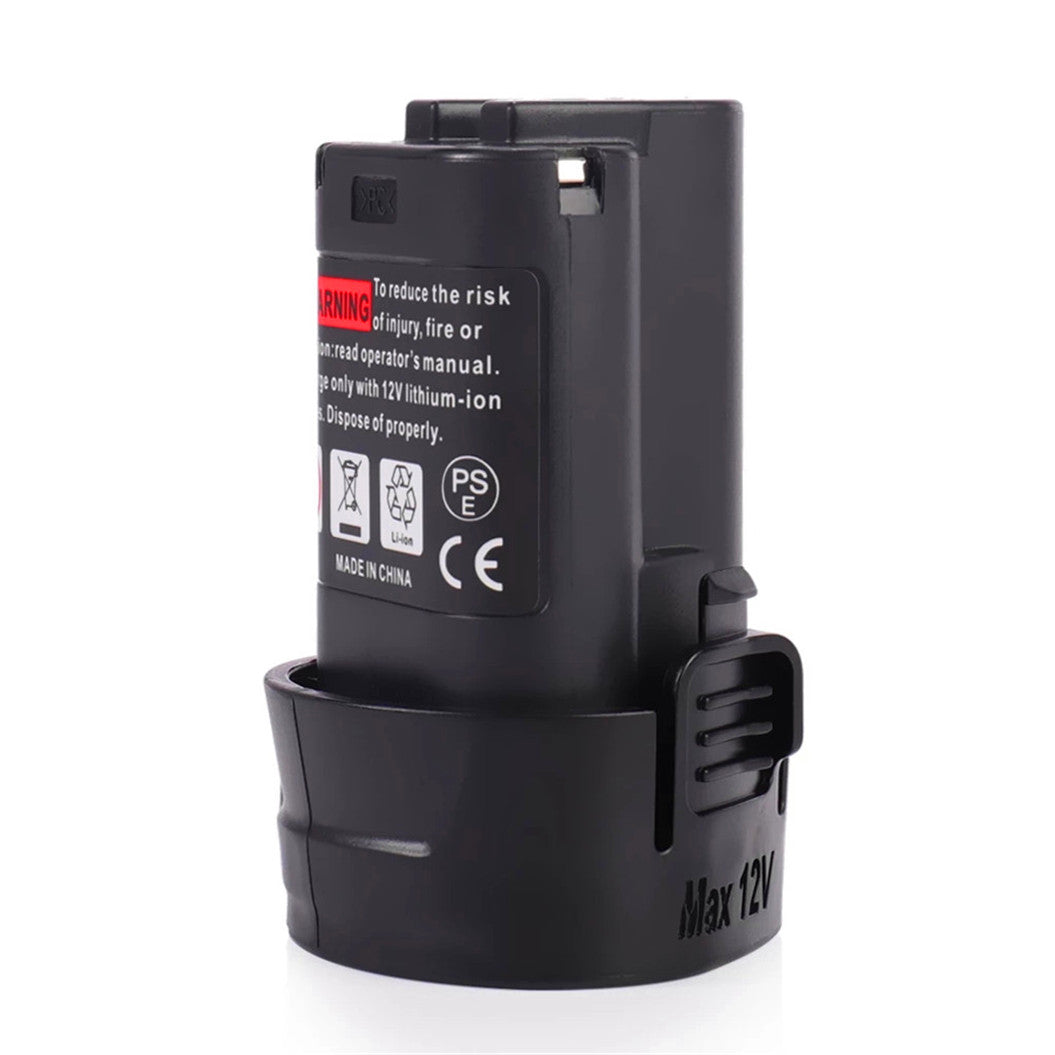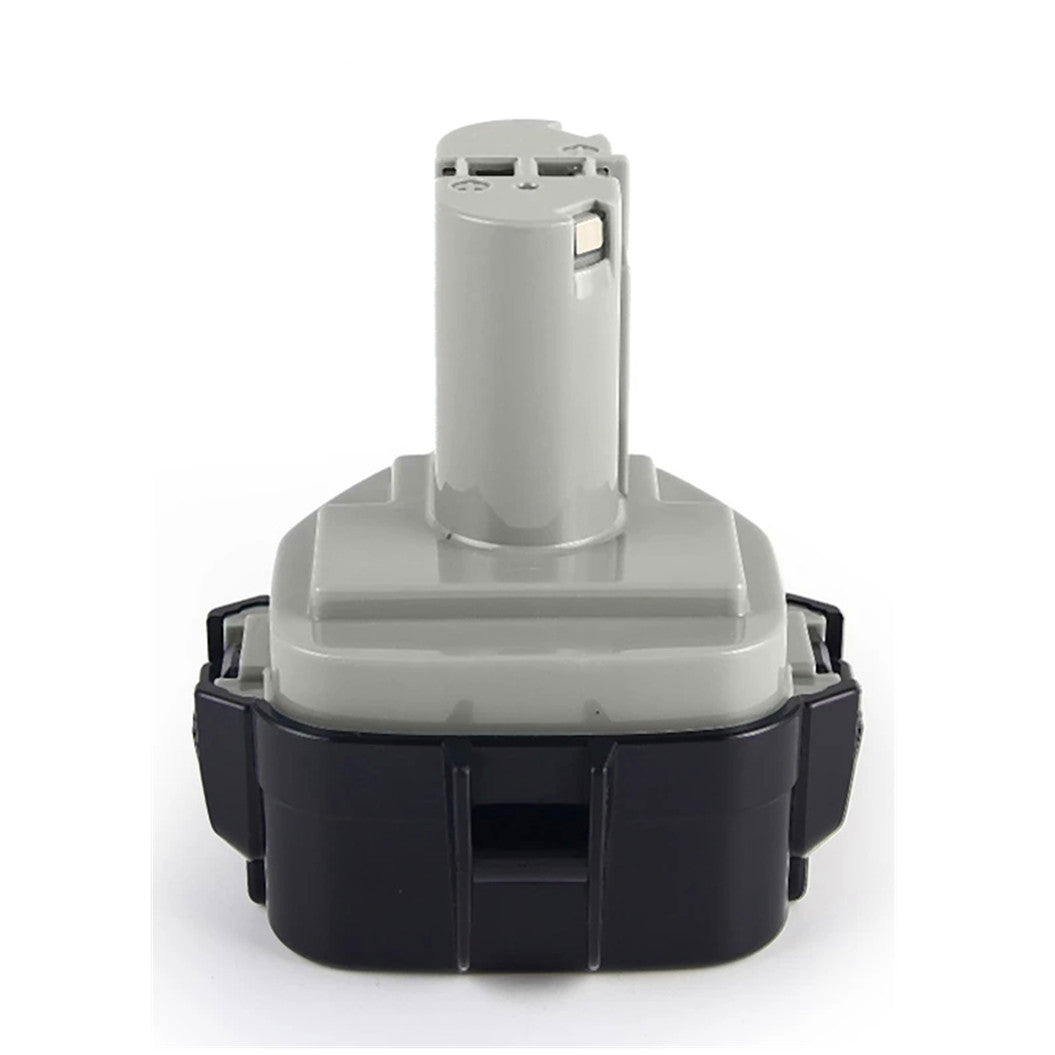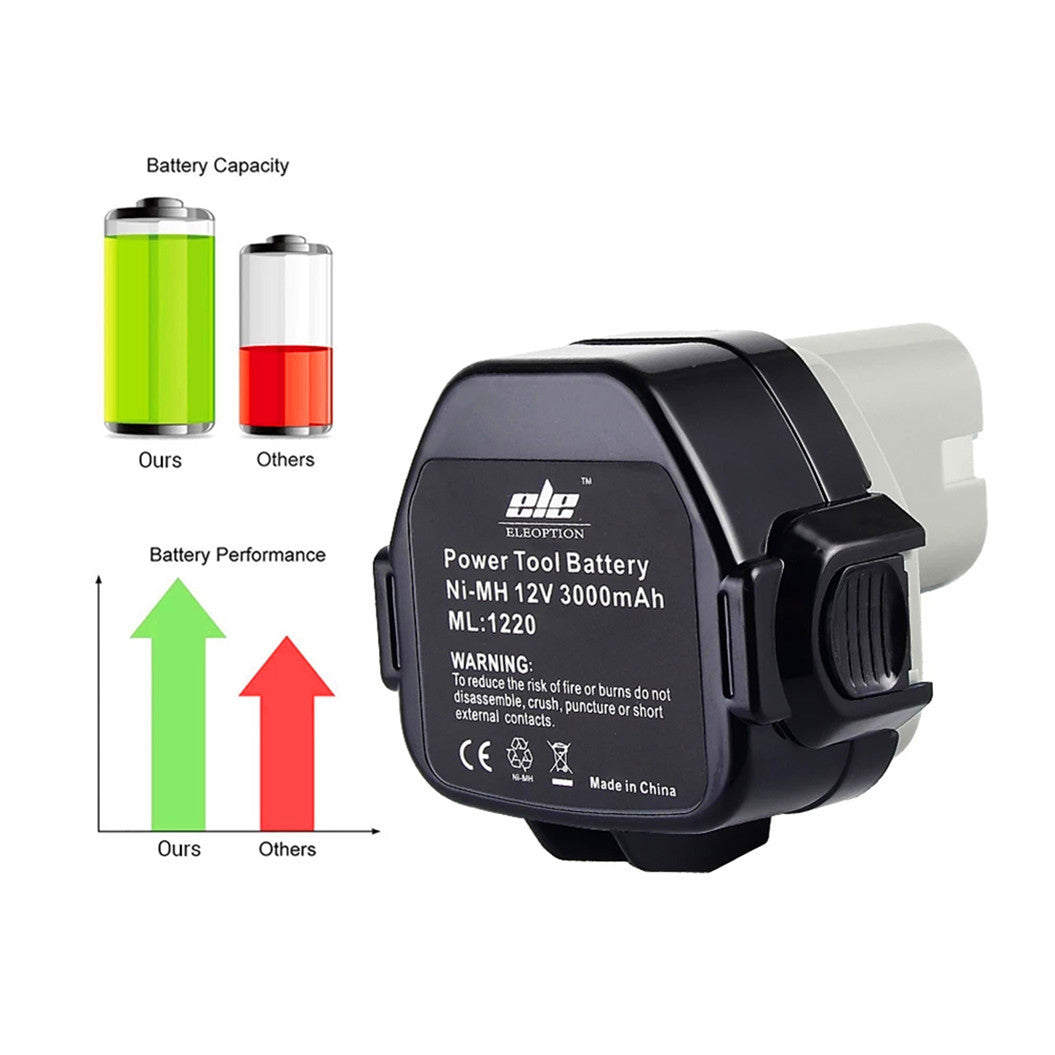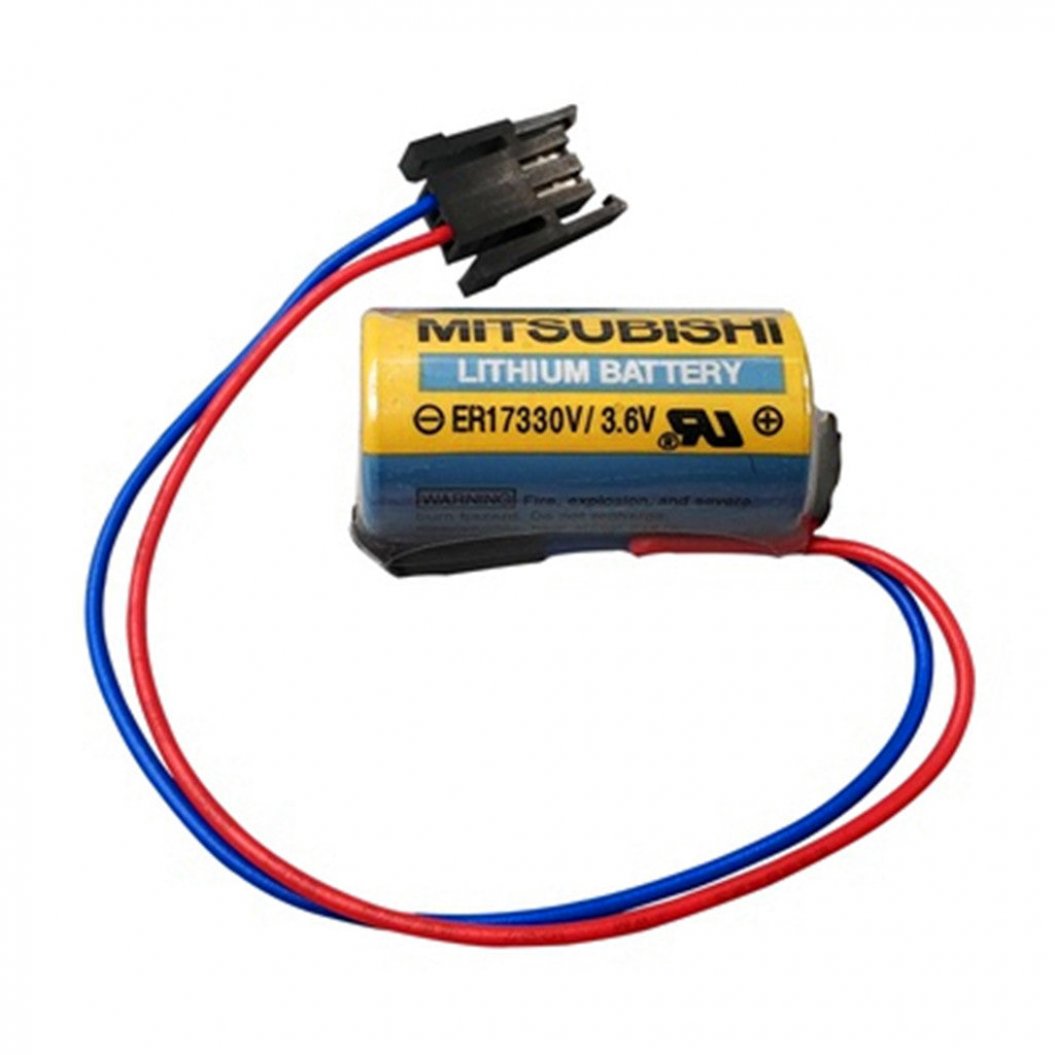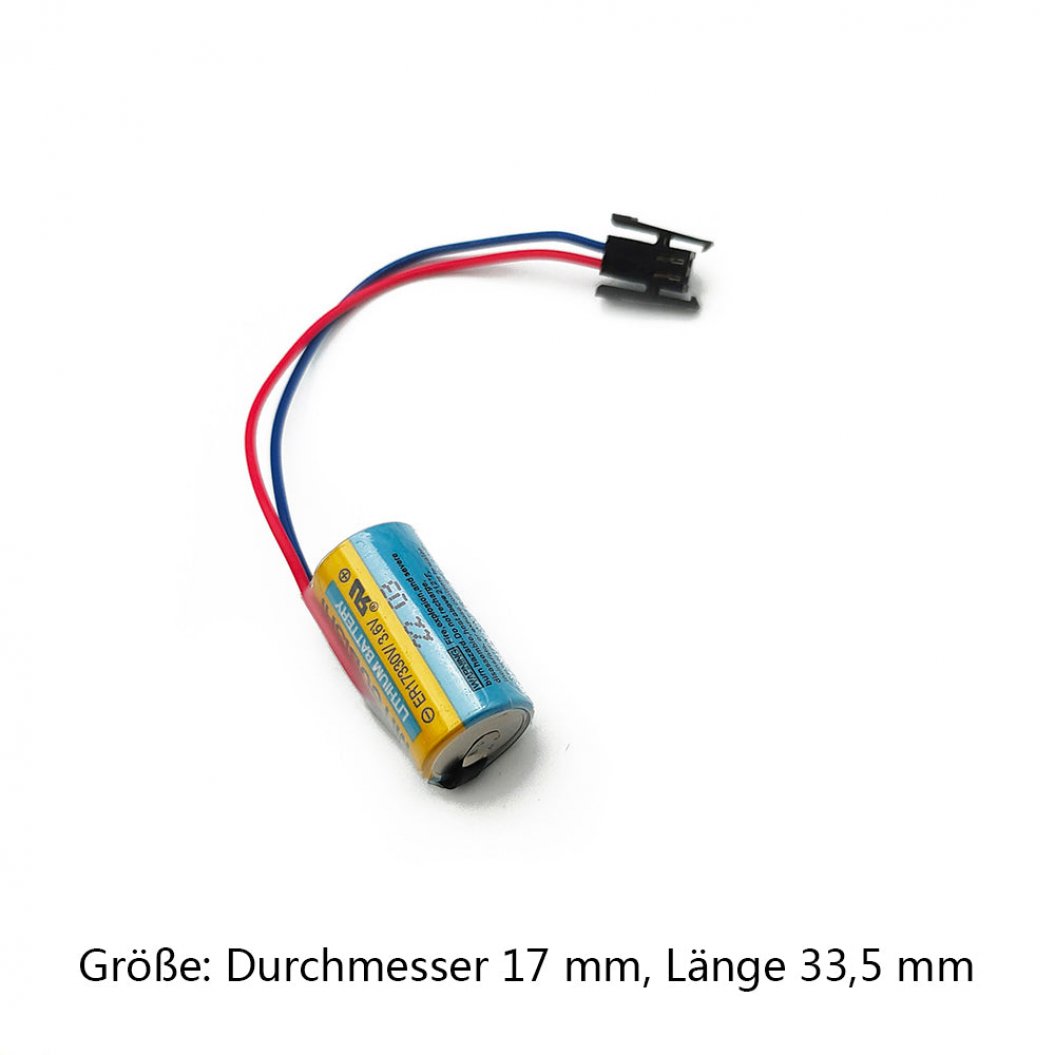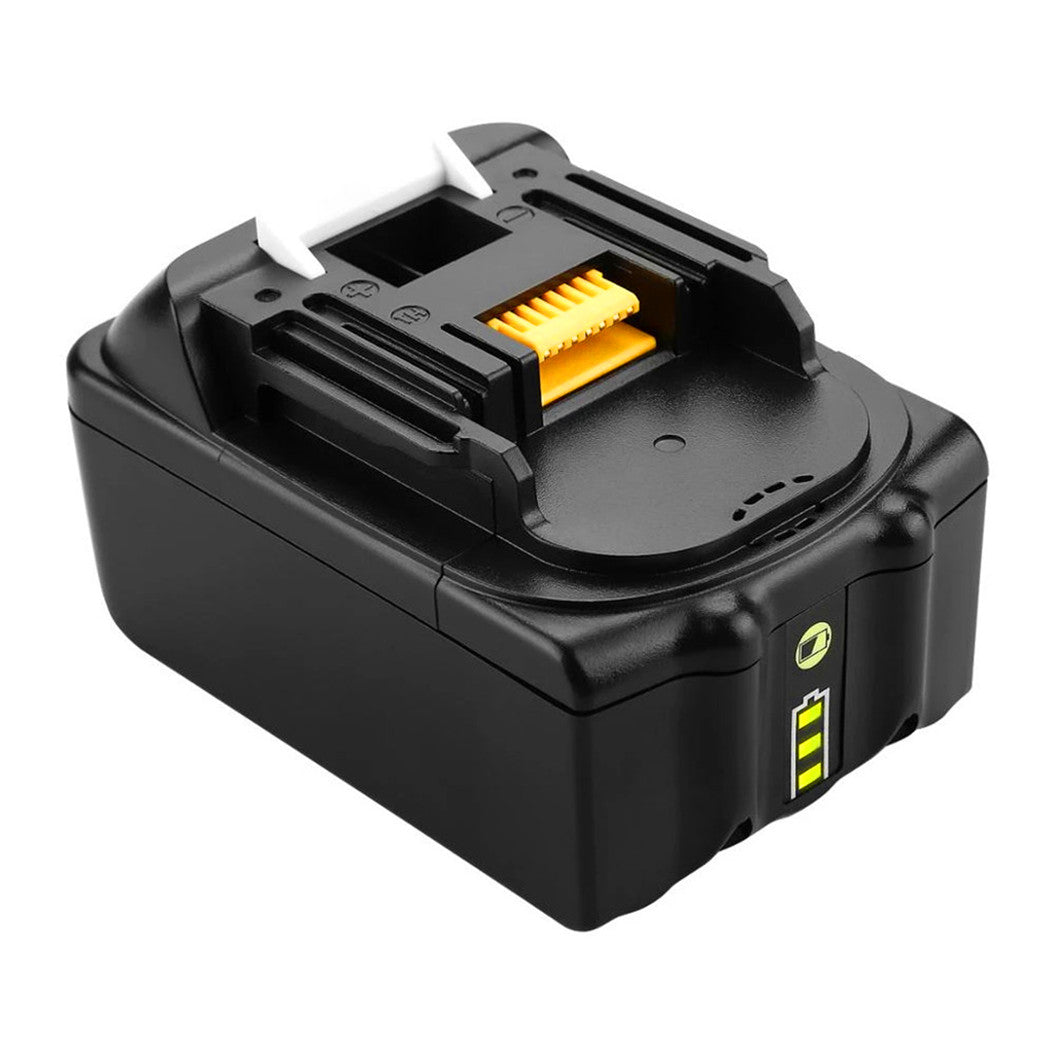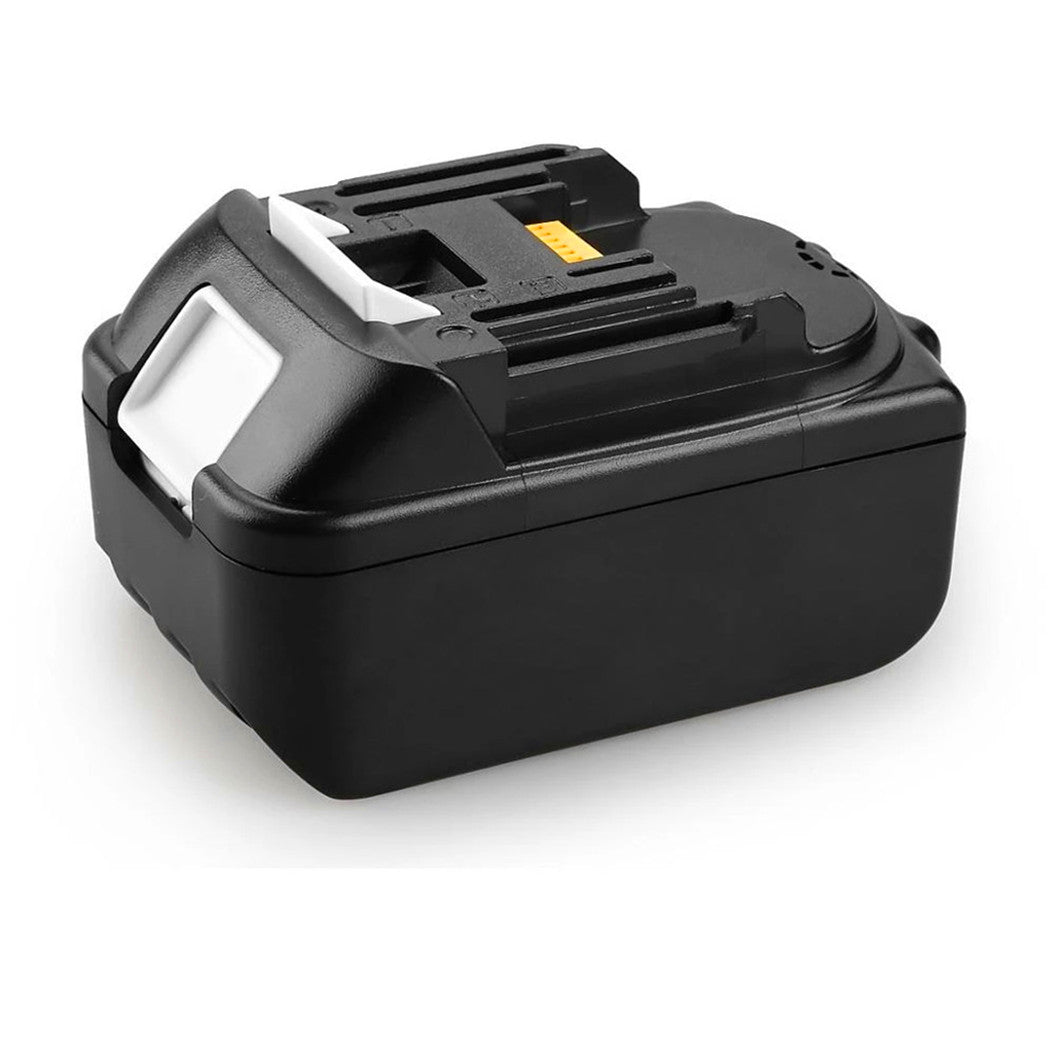-
Vendor:BATTERYINT
Walkera TALI H500-Z-22 Scout X4 Multi-axis 22.2V 5400MAH 10C Model Lithium Battery
- Regular price
- $72.99
- Regular price
-
- Sale price
- $72.99
- Unit price
- per
Walkera TALI H500-Z-22 Scou... -
Vendor:BATTERYINT
4 pieces BL1860 18V 6.0Ah Li-ion battery for Makita BL1850B BL1850 BL1860B BL1840
- Regular price
- $165.00
- Regular price
-
- Sale price
- $165.00
- Unit price
- per
4 pieces BL1860 18V 6.0Ah L... -
Vendor:BATTERYINT
4 pieces 18V 5.0Ah Li-Ion battery for Makita BL1860B BL1850B BL1860
- Regular price
- $162.00
- Regular price
-
- Sale price
- $162.00
- Unit price
- per
4 pieces 18V 5.0Ah Li-Ion b... -
Vendor:BATTERYINT
2 pieces 7.2V 3000mAh Ni-Mh replacement battery for Makita 7000 7002 7033 191679-9 192532-2 3700D 4071D ML700 L10
- Regular price
- $55.00
- Regular price
-
- Sale price
- $55.00
- Unit price
- per
2 pieces 7.2V 3000mAh Ni-Mh... -
Vendor:BATTERYINT
2 pieces 18V 4.0Ah Li-ion battery for Makita BL1840B BL1850B BL1850
- Regular price
- $57.99
- Regular price
-
- Sale price
- $57.99
- Unit price
- per
2 pieces 18V 4.0Ah Li-ion b... -
Vendor:BATTERYINT
2PCS 1500mAh 3.7V Socket 102050 Lithium Polymer Battery for Portable Devices and Instruments
- Regular price
- $12.99
- Regular price
-
- Sale price
- $12.99
- Unit price
- per
2PCS 1500mAh 3.7V Socket 10... -
Vendor:BATTERYINT
9.6v 2.0Ah Ni-MH battery for Makita 9100, 9101, 9102, 192534-A
- Regular price
- $34.99
- Regular price
-
- Sale price
- $34.99
- Unit price
- per
9.6v 2.0Ah Ni-MH battery fo... -
Vendor:BATTERYINT
2 pieces 5.5 Ah BL1850 Li-ion battery for Makita 18V BL1850 BL1850B
- Regular price
- $82.90
- Regular price
-
- Sale price
- $82.90
- Unit price
- per
2 pieces 5.5 Ah BL1850 Li-i... -
Vendor:BATTERYINT
2 pieces 10.8V 2000mAh lithium-ion battery for Makita BL1013 194551 4 BL1014
- Regular price
- $34.99
- Regular price
-
- Sale price
- $34.99
- Unit price
- per
2 pieces 10.8V 2000mAh lith... -
Vendor:BATTERYINT
12V 3000mAh Ni-MH Battery for MAKITA 1222 1220 1233 1234 1235 1200 192696-2 192698-8
- Regular price
- $44.74
- Regular price
-
- Sale price
- $44.74
- Unit price
- per
12V 3000mAh Ni-MH Battery f... -
Vendor:BATTERYINT
New ER17330V/3.6V SPS Mitsubishi Servo Drive A6BAT/MR-BAT Lithium Battery ANS Series
- Regular price
- $5.99
- Regular price
-
- Sale price
- $5.99
- Unit price
- per
New ER17330V/3.6V SPS Mitsu... -
Vendor:BATTERYINT
BL1860 18V 5000 mAh Rechargeable Lithium Li-Ion battery for Makita 18v battery BL1840 BL1850 BL1830 BL1860B
- Regular price
- $45.90
- Regular price
-
- Sale price
- $45.90
- Unit price
- per
BL1860 18V 5000 mAh Recharg...
Showing 1 -12 of 33 items
1. How long do power tool batteries typically last?
power tool batteries usually last anywhere from 2 to 5 years, depending on how often you use them, the type of tool battery, and how well they are maintained. High-quality batteries, such as a makita battery, often have a longer lifespan due to their superior build and capacity. Extending the life of your cordless tool batteries, proper storage, avoiding extreme temperatures, and regular charging are essential practices.
2. Can I use a different brand of battery with my power tools?
While it might seem convenient to use any battery with your tools, most power tool batteries are designed to be compatible only with the same brand. For instance, a makita battery should be used only with Makita tools. Mixing brands could result in poor performance or even damage to your power tool. However, some third-party manufacturers create batteries that claim to be cross-compatible, but it’s important to research whether they meet the necessary safety and performance standards.
3. How do I maintain my power tool battery for optimal performance?
Maintaining your tool battery is key to ensuring long-term performance. Always store cordless tool batteries in a cool, dry place and avoid exposing them to extreme temperatures, which can degrade their capacity. Regularly charge your batteries and avoid leaving them on the charger for prolonged periods once fully charged. Keeping the battery clean and avoiding moisture can also help maintain its functionality over time.
4. How can I tell if my power tool battery is faulty?
A power tool battery may be faulty if it no longer holds a charge or loses its charge rapidly. If your tool shuts off abruptly or the charging light on your charger doesn't behave as expected, it could indicate a problem. Additionally, a swollen or hot-to-the-touch battery is a clear sign of malfunction. If these symptoms persist, replacing the tool battery is likely the best course of action to avoid further damage to your tool.
5. Are all cordless tool batteries interchangeable?
Not all cordless tool batteries are interchangeable, as compatibility is usually restricted by the tool brand and model. A makita battery, for example, will only work with specific Makita tools. Although some universal adapters claim to fit multiple brands, it's always best to use the manufacturer-recommended battery for each power tool to ensure optimal performance and avoid voiding warranties.
6. How long does it take to charge a power tool battery?
The time it takes to charge a power tool battery varies depending on the battery's capacity and the charger used. On average, most cordless tool batteries take between 30 minutes to a couple of hours to fully charge. Faster chargers are available for brands like Makita, but it’s important not to overcharge your battery, as this can reduce its overall lifespan. Always refer to your battery's manual for the recommended charging times.
7. Can I leave my power tool battery on the charger overnight?
It’s generally not recommended to leave power tool batteries on the charger overnight, especially if the charger doesn't have an automatic shut-off feature. Overcharging can shorten the battery's life and reduce its performance over time. Most modern chargers for brands like makita battery have built-in technology to prevent overcharging, but to ensure maximum battery health, it’s best to remove the battery once it's fully charged.
8. What is the difference between a lithium-ion and a nickel-cadmium tool battery?
Lithium-ion and nickel-cadmium (NiCad) batteries are two common types used in power tools. Lithium-ion cordless tool batteries are lighter, charge faster, and offer higher energy density, which means they last longer between charges. In contrast, NiCad batteries are bulkier, have a shorter lifespan, and are more prone to "memory effect," where the battery loses capacity over time if not fully discharged regularly. Most modern power tools, including makita battery models, now use lithium-ion technology due to these advantages.
9. Can extreme temperatures damage my tool battery?
Yes, extreme temperatures, both hot and cold, can significantly affect the lifespan and performance of your power tool batteries. In cold weather, the battery may lose capacity faster, while high temperatures can cause permanent damage, reducing its ability to hold a charge. If you use a makita battery or any other cordless tool battery in extreme conditions, it's essential to follow the manufacturer's recommendations for operating and storing the batteries within safe temperature ranges.
10. What should I do with old or dead power tool batteries?
When your tool battery no longer holds a charge or is completely dead, it’s important to recycle it properly. power tool batteries, especially those using lithium-ion technology like makita battery packs, contain materials that can be harmful to the environment if not disposed of correctly. Most hardware stores or recycling centers have designated bins for battery recycling, ensuring they are processed safely and in an environmentally responsible manner.


